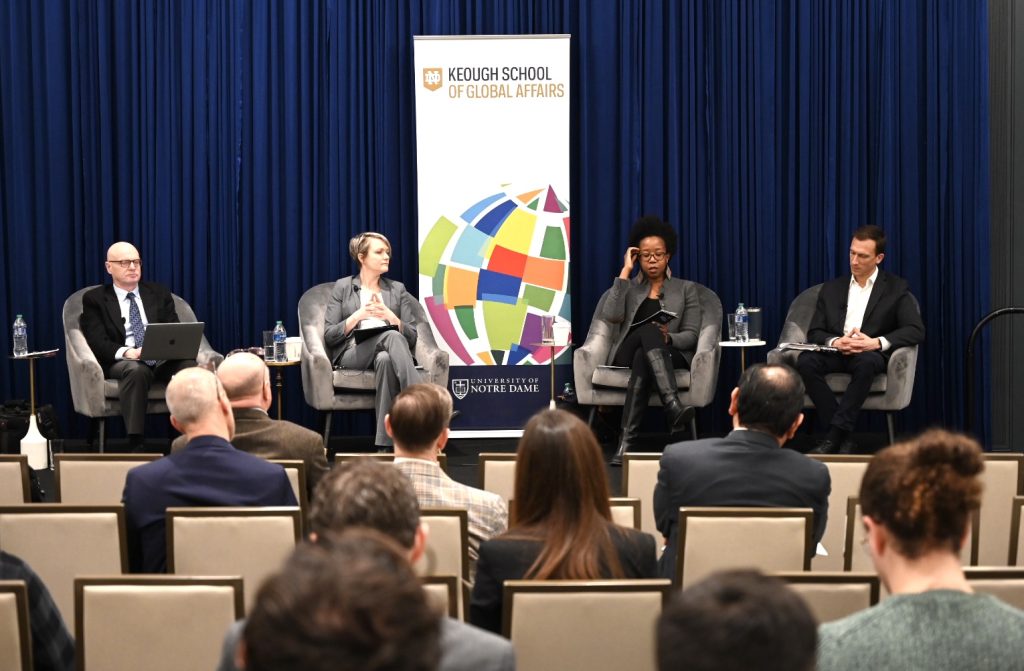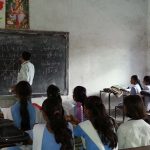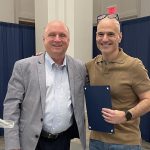How should the global community respond to injustices committed by those in power? What are the roles of courts, politics, and grassroots initiatives dedicated to trauma healing? These questions animated keynote addresses, panel discussions, and thought-provoking exchanges at the Keough School’s recent Dignity & Development conference held March 2-3 at the University of Notre Dame.
University President Rev. John I. Jenkins, C.S.C. introduced speakers for an opening roundtable discussion: Imani Daud Aboud, president of the African Court of Human & Peoples’ Rights, and moderators Scott Appleby, Marilyn Keough Dean of the Keough School of Global Affairs, and G. Marcus Cole, Joseph A. Matson Dean of the Notre Dame Law School.
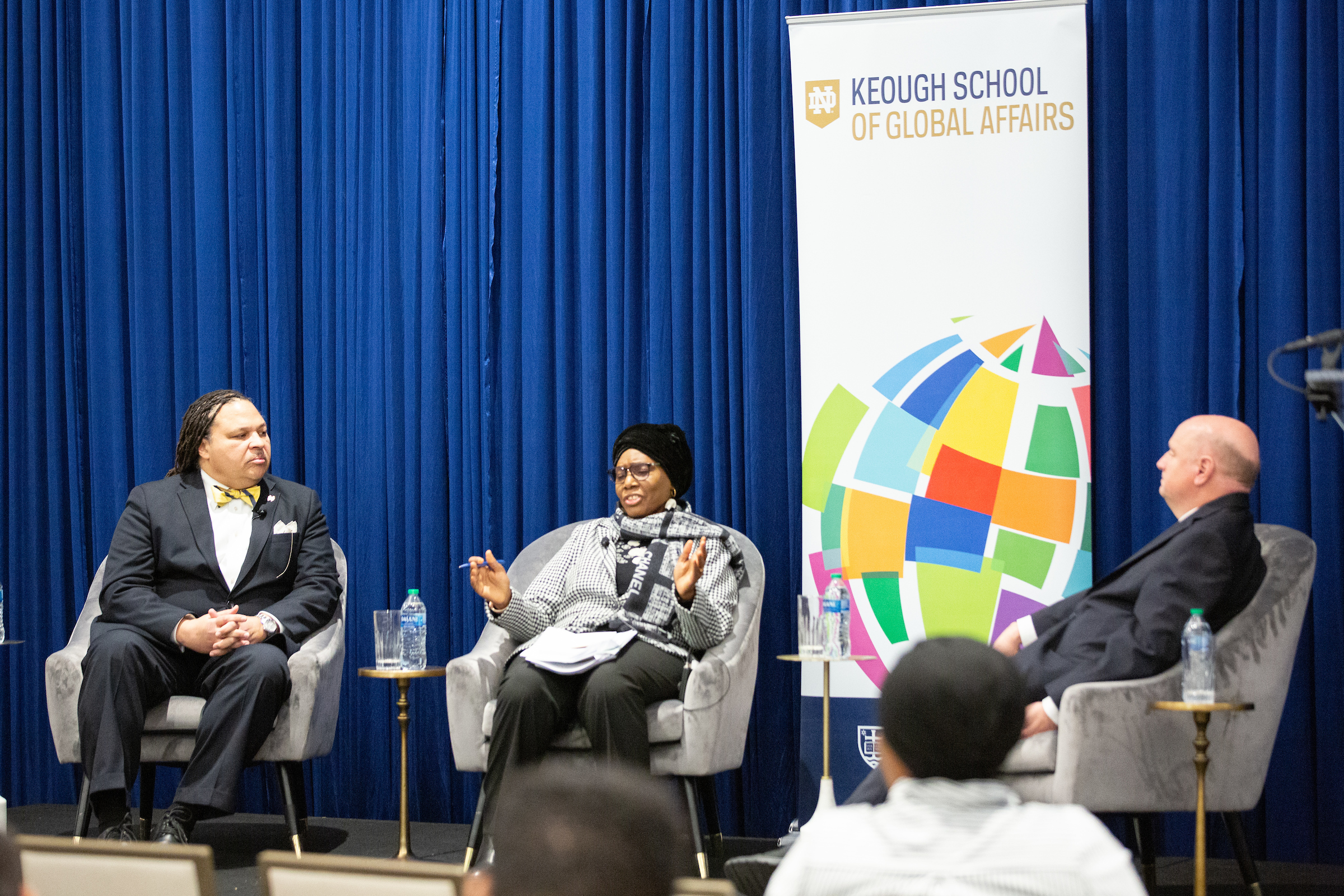
Aboud shared her vision for the African Court, the judicial arm of the African Union and one of the three regional human rights courts together with the European Court of Human Rights and the Inter-American Court of Human Rights.
“The court should be visible and vibrant, and to carry out its function of delivering justice on cases addressing violations of human rights,” Aboud said. For the African Court to be successful, it must collaborate with its stakeholders, namely, the African Union states, who created the body and currently fund it, she said. Aboud also spoke about the importance of “judicial diplomacy,” for example, that entails meeting with nongovernmental organizations and journalists to educate them about the court’s mission and to encourage them to serve as ambassadors for the court.
The court was established to protect the human and peoples’ rights in Africa principally through delivery of judgments, and it has its permanent seat in Arusha, the United Republic of Tanzania.
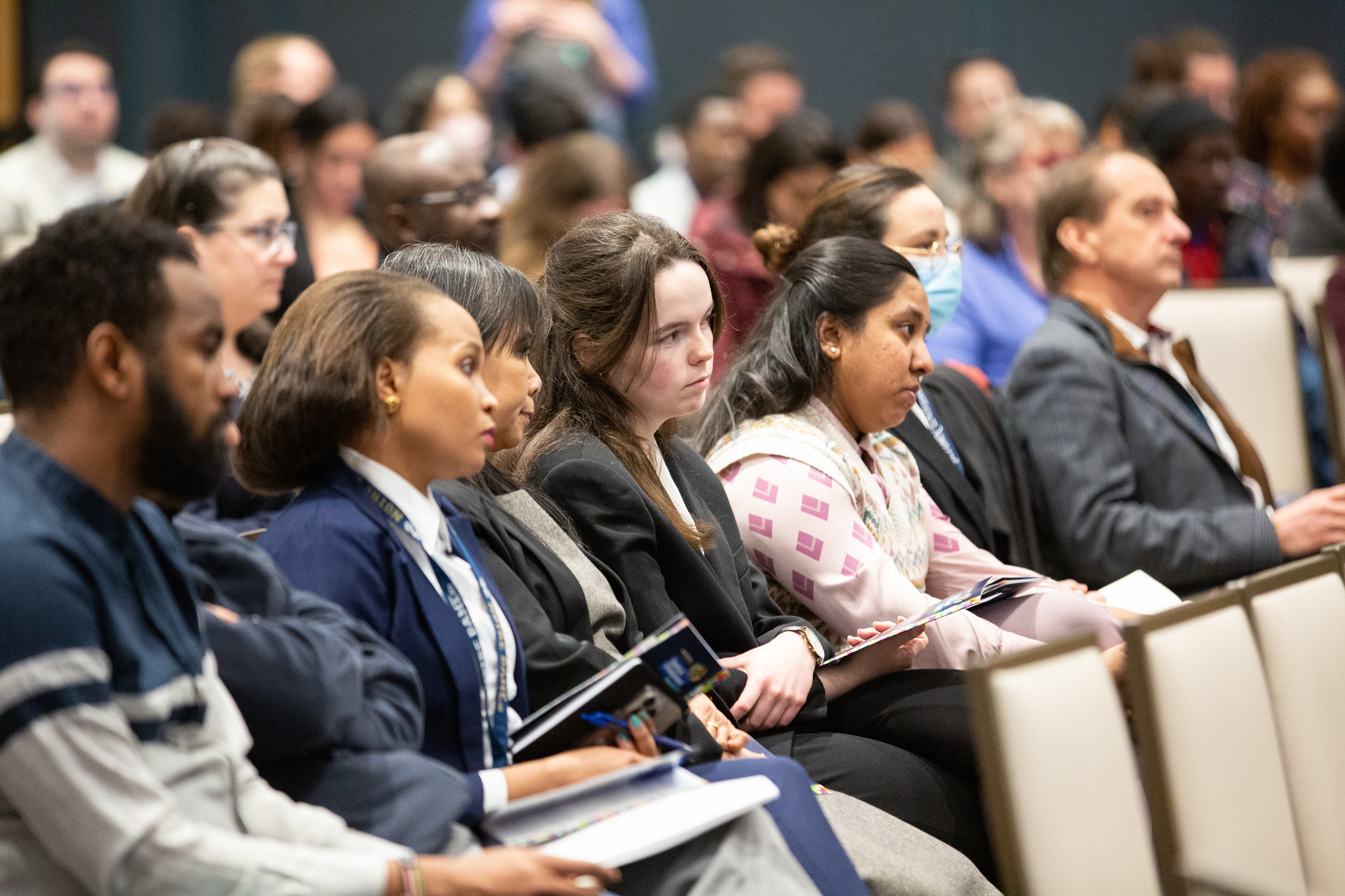
Also at the conference, addressing the role of courts in responding to injustices, was a panel of leaders from the world’s three regional courts of human rights: Aboud, Margarette May Macaulay, a former judge of the Inter-American Court of Human Rights; and András Sajó, a former judge of the European Court of Human Rights. This event marked the first time representatives from all three regional courts had gathered in the same space.
“This is a wonderful opportunity to participate in what is probably the most unusual sitting ever,” said moderator Diane Desierto, professor of law and global affairs, using the legal definition of the term. “We are joined by the best expertise in international human rights law on the planet, and have the opportunity to ask distinguished guests key questions about how to recognize dignity, how to ensure we advance rights, most importantly, to ensure those rights are protected among the most vulnerable in the world. This is such a rare and wonderful opportunity to have all of these jurisdictions represented.”
Politicizing human rights
In a keynote address focused on human rights, Charli Carpenter, professor of political science and director of the Human Security Lab at the University of Massachusetts Amherst, addressed the politicization and instrumental use of human rights by powerful world leaders. While optimistic thinkers tend to believe that this strategic behavior will reinforce human rights as worthy standards of international legitimacy and even nudge actors to improve their human rights behavior, pessimists worry that politicization will imperil the principles of universal human rights norms.
Carpenter described her own perspective as “poptimistic,” that is to say, somewhere in between.
“It’s not the politicization and instrumentalization by great powers that reinforce or undermine human rights,” she said. “The way the great powers trade in human rights talk, blame games, and human rights currency shows the power of principle.”
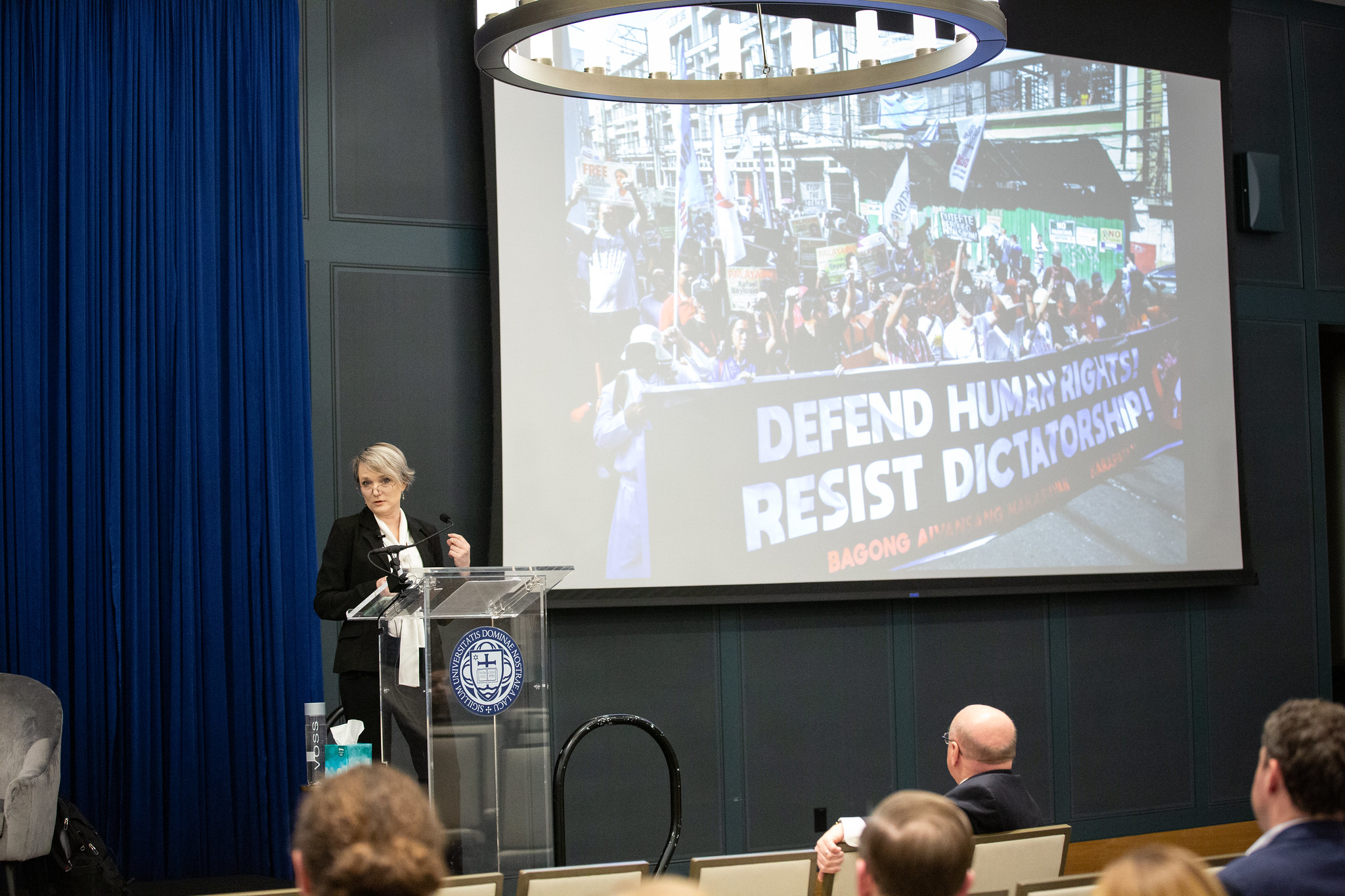
The legitimacy of human rights norms doesn’t rise and fall on how state actors talk about them, Carpenter said, because the purpose of human rights is to empower people, not states,
“It is the integrity and impartiality of norm champions, not of great powers or even states at all, that matters the most.”
The appeal of human rights remains universal and not solely in western contexts, said Carpenter, citing recent survey research in Afghanistan following the withdrawal of US troops. But in advocating for universal human rights, civil society needs to protect its impartiality and avoid getting entangled in their politicization.
The two-day conference also featured a later panel discussion on human rights featuring Carpenter and two other experts: Kelebogile Zvobgo, assistant professor of government at the College of William & Mary, and Clifford Bob, chair of political science at Duquesne University. Moderated by the Keough School’s Zoltán I. Búzás, associate professor of global affairs.
Health, healing, and well-being
Trauma, memory, and healing also served as central conference themes. Multiple panel discussions addressed the most effective practices, methods, and tools for promoting restorative and transformative justice following mass trauma. Panel participants representing diverse fields including medicine, psychology, anthropology, history and politics included Carlos Martin Beristain, a doctor of medicine and psychology who whose work focuses on victims of human rights violations in Latin America; Catherine Panter-Brick, professor of anthropology, health, and global affairs at Yale University; Claire Sugden, a politician from Northern Ireland; and Thomas Weber, a professor of history and international affairs at the University of Aberdeen; and panel moderator Josefina Echavarría, director of the Peace Accords Matrix and associate professor of the practice at the Keough School.
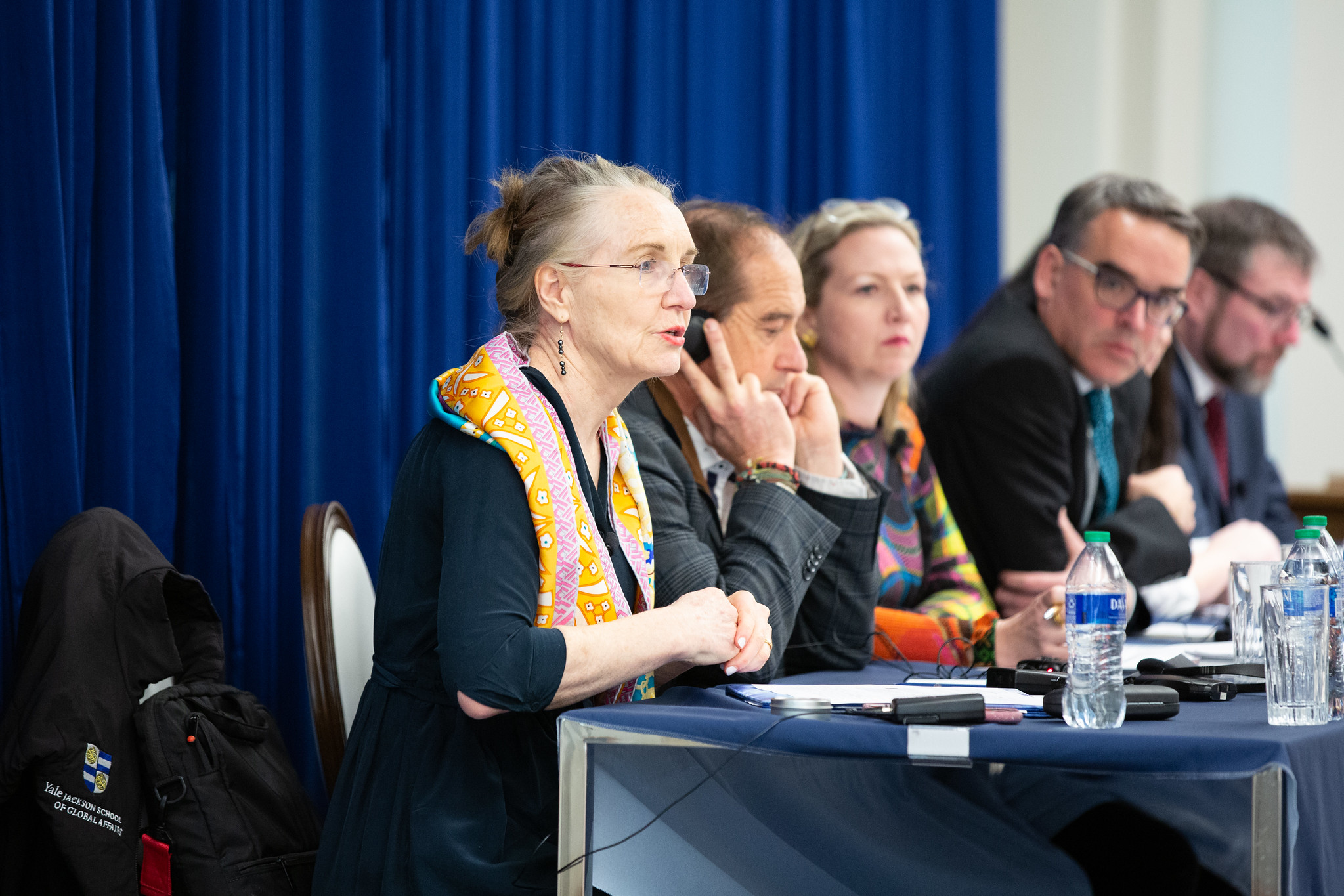
Key themes emerging from the panel was the intergenerational nature of trauma and the notion of justice as a process. In her opening remarks, panelist Claire Sugden, a former minister of justice in Northern Ireland, noted the upcoming 25th anniversary of the signing of the Good Friday Agreement. Though peace has largely endured, so do the lingering effects of trauma, even among citizens who are too young to have experienced violent conflict personally.
“Whilst many people in Northern Ireland will not have direct experience of conflict or the trauma of attacks, that trauma is passed from generation to generation,” she said.
Sugden then shared her experiences meeting with families who had been victims of violence during the Troubles.
“As a government our minimum responsibility is to help those families find answers as to why this incomprehensible trauma has happened to them. During my time as minister of justice I began to understand justice as a process. That process may not have given victims or their families the outcome they had hoped for, but giving them access to the process is the minimum we can do as legislators and as a way of finding the truth.”
Top photo: A panel discussion on human rights featuring Clifford Bob, chair of political science at Duquesne University; Charli Carpenter, professor of political science at the University of Massachusetts Amherst; Kelebogile Zvobgo, assistant professor of government at the College of William & Mary; and the Keough School’s Zoltán I. Búzás, associate professor of global affairs.
